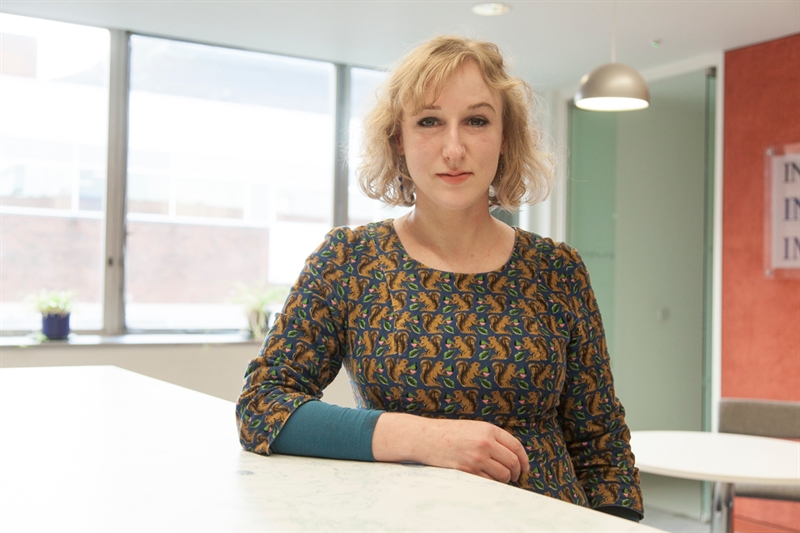Dr Angela Loyse, Clinical Senior Lecturer at St George's
 Dr Angela Loyse.
Dr Angela Loyse.
How did you get interested in Clinical Research?
"I have always been interested in research, even as a medical student. I was drawn to Infectious Diseases as a broad, multi-system speciality with a heavy focus on research and the potential for working internationally.
"I really enjoyed my BSc research project at the Institute of Child Health and was tempted at that stage to do a joint PhD/clinical training programme. In hindsight, I'm glad I did my clinical research in the speciality I trained in.
"My clinical research still took place at an early stage of my career, just at the end of the old senior house officer training programme at Barts and The London, after returning to Infectious Diseases mentors at St George’s Hospital looking for career advice. In 2006 I packed my bags for South Africa, first to Cape Town and then Pietermaritzburg to design, implement and co-ordinate a Clinical Infectious Diseases published phase II trial of combination antifungal therapy for HIV-associated cryptococcal meningitis as part of my MD(Res) supervised by Prof Tom Harrison. My MD(Res) also included work on the largest case series of MRI images of HIV-associated cryptococcal meningitis to date, a histopathological case series focusing on the pathology of raised intracranial pressure, a review of the poorly accessible antifungal medicine flucytosine and advocacy on antifungal medicines for HIV-associated cryptococcal meningitis more widely.
What schemes helped you with funding for your research?
"I was funded by a Medical Research Council trial grant during most of my MD(Res) whilst working in South Africa. In 2010 I obtained a training number in Infectious Diseases following my return from South Africa in 2009, and in 2012 I obtained a clinical academic lecturer post at St George’s. This was an important step and enabled me to have the funding and critical time needed to develop into an independent researcher.
"From 2012 onward I assisted in designing and played a critical role in the implementation of the ongoing ACTA (Advancing Cryptococcal Meningitis Treatment in Africa) trial, the largest trial of cryptococcal meningitis to date. I played an instrumental role in obtaining co-funding (408,294 Euros) from the French funding agency Agence Nationale de Recherche contre le VIH et les Hépatites virales (ANRS) for the two ACTA sites in Cameroon. In 2015 I obtained European & Developing Countries Clinical Trials Partnership (EDCTP) funding (1.88 million euros) for the DREAMM (Driving REduced AIDS-associated Meningo-encephalitis Mortality) project which I designed independently. I am funded on DREAMM and the EDCTP funded AMBITION trial of liposomal amphotericin B for HIV-associated cryptococcal meningitis. I was appointed a senior lecturer and honorary infectious diseases consultant at St George’s University in 2016. In 2019 I was appointed an expert advisor to the Clinton Health Access Initiative (CHAI) for Unitaid’s 20 million USD initiative on Advanced HIV disease in 7 African low-and middle-income countries (LMICs) . I am currently leading work with CHAI on the development of a toolkit on Advanced HIV disease.
How do you see your career developing in the future?
"I am the chief investigator of the DREAMM project which is an implementation project backed by Institut Pasteur and Centers for Disease Prevention and Control (CDC). The project is currently ongoing in three LMICs in Africa: Malawi, Tanzania and Cameroon. I am also a co-investigator on the EDCTP funded TRIP (Translating Research into Practice) trial taking place in Tanzania which is a follow-on implementation project to the successful, Lancet published REMSTART trial. I am keen to pursue my work in the fields of implementation alongside clinical trial work in resource limited settings. I am interested in combining traditional clinical trial know how with mixed methodology including locally driven health system strengthening.
“Another key focus of my work is the evaluation of new and existing diagnostics within resource limited settings and optimizing their use within optimized laboratory pathways. Within DREAMM we are evaluating a number of new diagnostics including for syphilis, tuberculosis and cryptococcosis, a leading cause of HIV-related deaths.
"Lastly, I chair and lead the work of the cryptococcal Meningitis Action Group (cryptoMAG) advocacy group in collaboration with CDC. The aim of the group is to improve access to essential antifungal medicines and tests for the diagnosis and treatment of HIV-associated meningitis. CryptoMAG members include stakeholders including from the World Health Organisation (WHO), Médecins sans Frontières (MSF)-Access campaign, The Elizabeth Glaser Paediatric Foundation (EGPAF), CHAI, South Africa’s National Institute of Communicable Diseases (NICD), Coalition PLUS, the Global Action Fund for Fungal Infections (GAFFI) and academic experts from SGUL, Institut Pasteur, Oxford University and the University of Minessotta.
“I wish to pursue a career in global health including both clinical trial work and implementation research whilst continuing my advocacy work. Ultimately, I aim to continue work in the fields of clinical and implementation research, advocacy and international public health policy. Success for me would be that my current work is no longer needed! Should success be achieved, I have a large number of other interests including health system strengthening within Europe, botany and the medicinal properties of plants!"